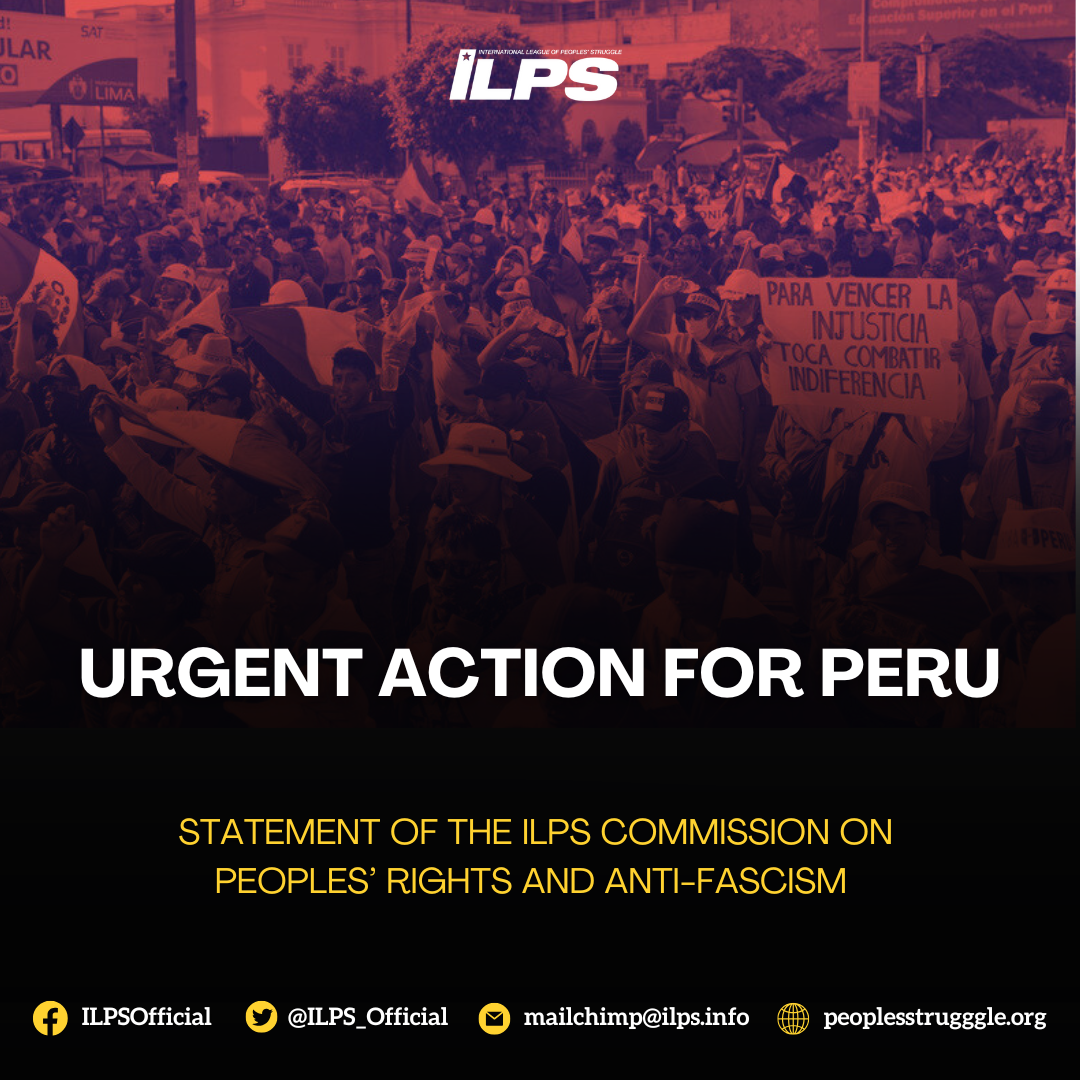Statement on COVID-19 Pandemic
ILPS Commission on the Environment and Climate Justice
The people of the world face tremendous suffering as the Coronavirus Disease 2019 (COVID-19) pandemic widens and worsens. It has spread across the globe and has infected, as of this writing, at least 190,000 people in more than 150 countries around the world. [i] COVID-19 strikes twice as it affects both the health of the people and their economic survival. It fans the flames of the global economic crisis and thus doubly exacerbates the injustices suffered by the marginalized.
The biggest stock markets like the Dow Jones, FTSE, Nikkei of the United States, United Kingdom, and Japan, respectively, have already lost a cumulative average of 30% of their value since the virus outbreak in February 2020. In the second week of March, the Dow saw its biggest one-day decline since 1987.[ii] In China, the manufacturing operations and industrial production declined by 13% while consumer consumption declined by 20%.
Pandemics like COVID-19 have occurred more frequently and have affected wider areas since the start of capitalism. It further intensifies at the turn of the 20th century, the era of imperialism. Seven (7) of the 10 worst pandemics that occurred in history happened from 1850s to 2012.[iii]
Capitalism is a fertile breeding ground for the occurrence of epidemics and pandemics. People are forced to concentrate and interact in relatively smaller areas such as urban cities, factories, and malls as production, trade and consumption increases. As capitalist exploitation intensifies, the living conditions of the working people deteriorates as has been shown by the situation of homeless people, especially in the urban poor communities.
The increasing volume and pace of capitalist production and consumption mean higher extraction of natural resources from the environment. This resulted in massive ecological degradation and pollution that not only caused economic displacement and poor health to the poor, but also spur the outbreaks of infectious diseases.
Epidemiologists alongside animal scientists have noted that “60% of emerging infectious diseases that affect humans are zoonotic—they originate in animals. And more than two-thirds of those originate in wildlife.” [iv] Chinese authorities point out that COVID-19 itself likely originated from live animal markets.[v]
On the other hand, society continues to develop and harness science and understand nature. History has shown that the rapid development of medical science and technology resulted in the decreasing number of infections and deaths from epidemics and pandemics.
Despite the medical advances, these remain inaccessible to the working class and other oppressed and exploited especially in neocolonial countries in Asia, Africa, and Latin America. Anti-vaccine remains expensive and usually out of reach of poor patients like those infected with human immunodeficiency virus (HIV). Medicines and technology are being controlled by big pharmaceutical companies and being sold at the highest price possible.
In the advent of pandemics, governments in advanced capitalist and neo-colonial countries are wanting to employ draconian measures to control people’s freedom of movement to control the spread of diseases. It employs the state forces to sow fear and repress the people in order to follow the so-called health measures or actions of the government.
While physical containment such as lockdowns and quarantine is in some cases necessary to combat the spread of viral outbreaks, the primary anchor of approach and solution is the provision of affordable if not free, adequate, and effective medical interventions to the population. In the context of autocratic regimes in certain countries, this so-called physical containment is weaponized to suppress the people’s criticism, dissent, and resistance.
These regimes have even rejected proposed guidelines and protocols developed through time such as the World Health Organization on Quarantine. Creative ways to balance economic considerations and health measures are critical in as quarantines are applied to bigger communities. Tapping people’s democratic participation, with stringent health guidelines could help address the limits of current healthcare resources. Re-channeling huge military budget to improving health services and reinvigorating destroyed ecosystems will be good measures to manage if not prevent epidemics in the immediate and longer-term.
During the COVID-19 pandemic, people of different nations should help and extend solidarity to each other and collectively demand a swift, healthcare-centred, community-based, and scientific approach to the problem from national governments and international institutions. Simultaneously expose the root causes of the poor health care systems and services, especially in poor countries; demand accountability from governments which are negligent of their duties to protect the people’s health and safety; and campaign against big corporations which make profiteering from the health crisis.



